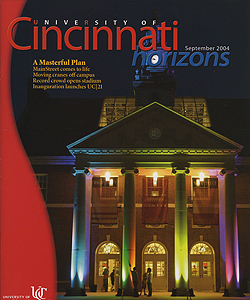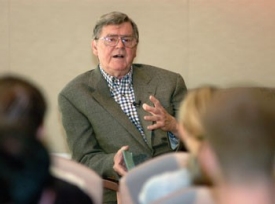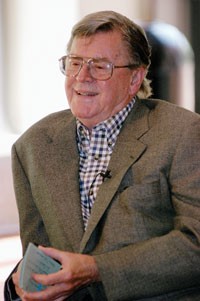Tells students how to reach the top without losing one's values
by Deborah Rieselman
While enemy planes droned overhead and bombs exploded a few miles away, the young GI kept writing. Neither the sounds of Paris under siege nor the confusion and fear that gripped the city during World War II were enough to force Earl Hamner to put down his journal. This soldier, after all, was going to be a writer.

 Past Issues
Past Issues

